#filmmaking
Text
Making the Most out of your First Draft
As someone who used to write every first draft without planning and then use that to figure out characters and outlines, I have a lot of experience in first drafts that are incredibly helpful to forming an actual story, and drafts that don’t add much.
So here’s how to make the most out of your first draft:
1. Write what doesn’t make sense
One of the most helpful first drafts I ever wrote abandoned plotlines and started new ones as though they had existed all along like several times. It was also the longest draft I had ever written because I had packed so many ideas into it. The reason why this is helpful is because you can test out what a plot point will look like in the middle or even end of your story without having to go back to the same beginning again and again.
It doesn’t need to make sense, just try things out. Disappear characters who don’t work, add a best friend near the end that acts like they’ve been there the entire time, whatever idea you’re interested in you can try out without worrying too much about what makes sense or what you’d need in place to set it up. It's like literally stream of consciousness writing, and you're going to learn so much more about your world, plot, and characters than trying to make it make sense.
2. Write poorly
I spent a lot of that first draft having characters monologue to themselves or each other about their interests and problems and lives which allowed me to explore their backstories and voice even if that’s not something I would do in a final draft. I had the wackiest plot points to see how my characters would react, what would happen to the plot, and if I didn’t like it I would keep going like nothing had happened, I did a lot of yadda-yaddaing over worldbuilding and setting the scenes and making up things on the spot to see if they’d stick, skipping sometimes to the interesting stuff, or adding in a random scene just for fun.
It doesn’t have to be good. Even a little bit. You’re learning about your world and your characters and the story you want to tell, but you aren’t writing it yet. Allow it to be the worst thing you’ve ever written.
3. Make notes on what you like
As you go through and throw spaghetti at the wall (figuratively speaking), make notes on the things that stick. If you write a line of dialogue you really like, or a piece of backstory or even a vibe, make sure to make a note of it somewhere. This will help you narrow down your ideas to what you want to keep when you start writing your story. And if you’re like me and you want to outline or plan your subsequent drafts, these notes will be invaluable to start forming your planning.
Anything else I missed?
#writing#creative writing#writers#writing community#screenwriting#writing inspiration#books#filmmaking#film#writing advice#first draft#making the most out of your first draft#pantsing#pantser#writers on tumblr
93 notes
·
View notes
Text
#charmed#toronto maple leafs#the ancient magus bride#whimsigoth#dissociation#20gayteen#tomco#killing stalking#muse#a day to remember#fat anime#ts4 cc#filmmaking
124 notes
·
View notes
Text
#ts4 cc#filmmaking#touching#newsies#alicia vikander#cassandra clare#emily willis#jesus christ#taz balance#inotan#homemade#wwii#vote#crowley#ryuko matoi
129 notes
·
View notes
Text
youtube
44°58'23.5"N 6°03'54.8"E
youtube/oftwolands
www.oftwolands.com
#of two lands#travel#mountains#nature#filmmaking#video#blackmagic design#landscape#bmcc6k#france#French alps#cinematography#color grading#alpe d'huez#blackmagic#cinema camera 6k#6k#earth day#earthday#earth day 2024#frames#winter#florent piovesan#Youtube
24 notes
·
View notes
Text
Also, props to Allan???
He's a doll most people have never heard of. He got discontinued forever ago cause he was perceived as gay by consumers and they didn't like that.
But I love that he had an actual role in Barbie. He was very queer coded, yeah, but he didn't like when all the Kens turned to Patriarchy. He was so uncomfortable that he wanted to abandon Barbieland all together. He knew it was wrong.
And then he helped the Barbies get themselves back. He had a pink jumpsuit and sunglasses and went out all stealthy to get the Barbies in the van. He even voted at the end to keep the constitution the way it was.
Big Allan fan over here.
#barbie#barbie spoilers#barbie movie#barbie movie spoilers#margot robbie#ken#barbie ken#ryan gosling#film#filmmaking#greta gerwig#writing#barbenheimer#michael cera#kate mackinnon#simu liu#will ferrell#america ferrera#corner conversations
65K notes
·
View notes
Text
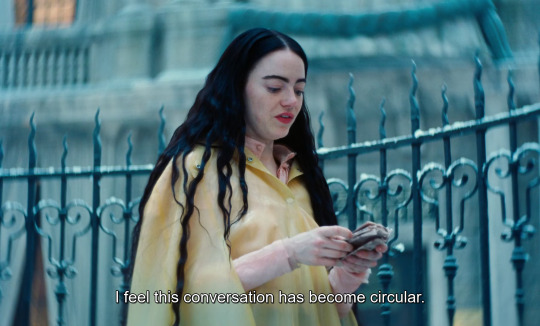
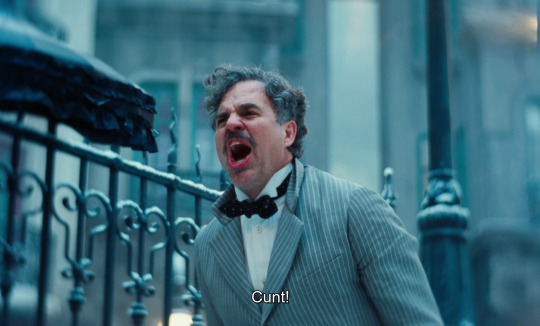
Poor Things (2023)
dir. Yorgos Lanthimos
#poor things#emma stone#mark ruffalo#willem dafoe#film#stills#film stills#caps#screencaps#screenshots#filmmaking#filmedit#cinema#dailyworldcinema#cinemaspam#cinephile#cinematography#bella baxter#2023#duncan wedderburn#godwin baxter
3K notes
·
View notes
Text
How I broke myself in half.
19K notes
·
View notes
Video
“Behind the scenes with the unsung heroes of movie sets - camera operators.” (X)
7K notes
·
View notes
Text
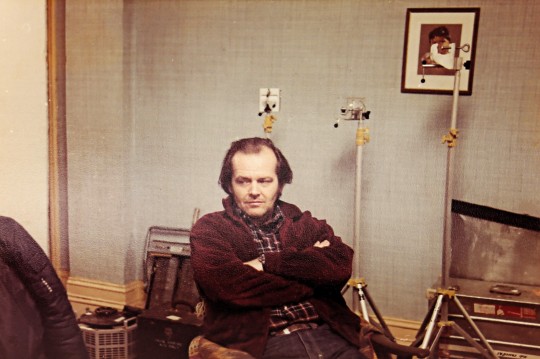
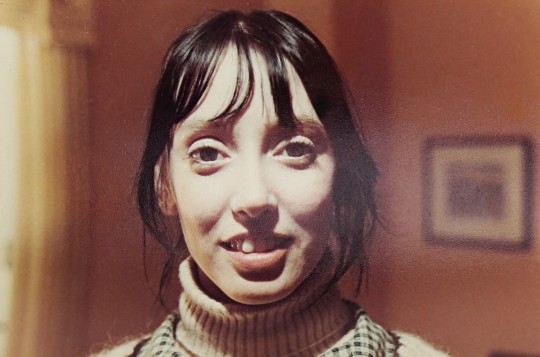
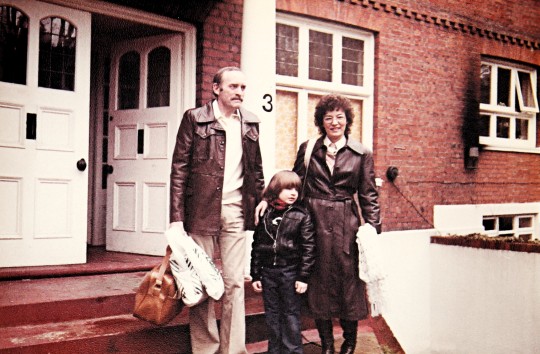

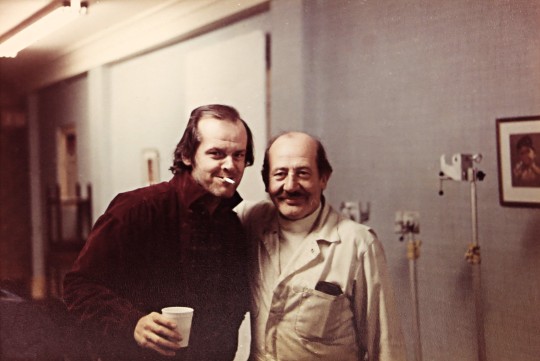
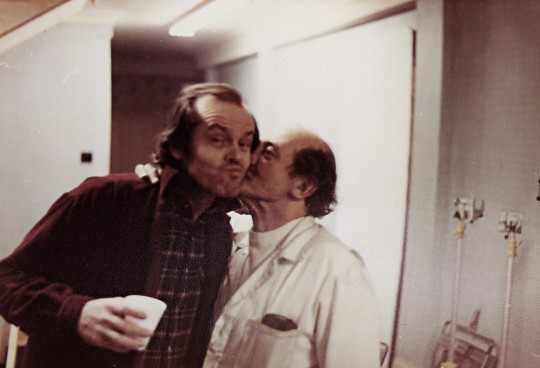
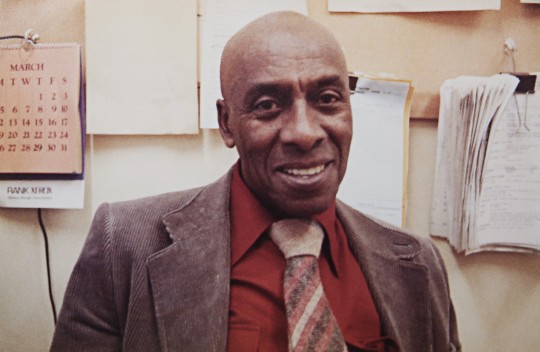
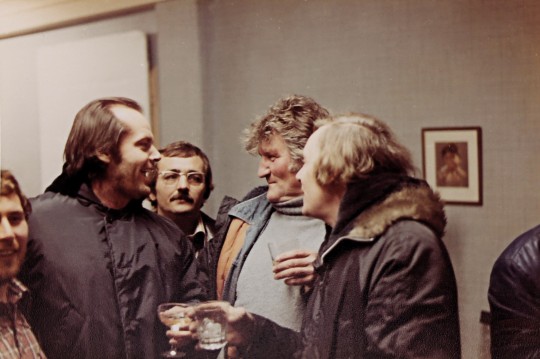
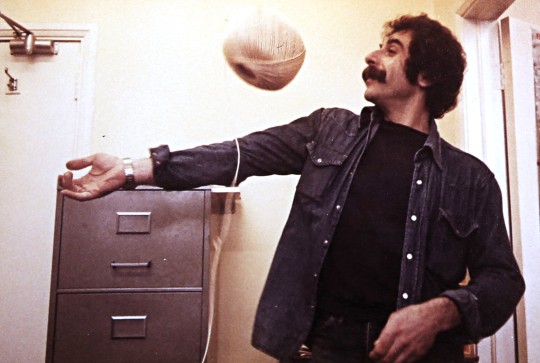
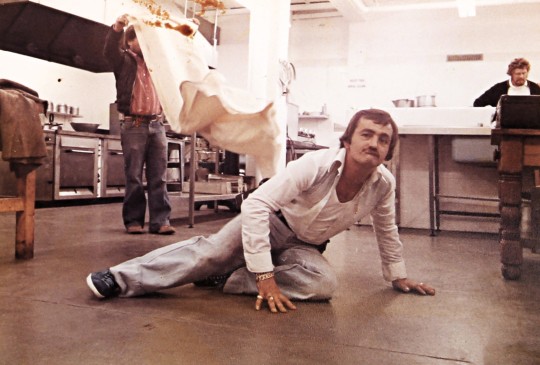
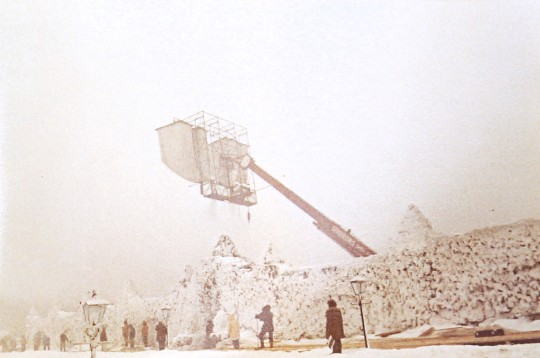
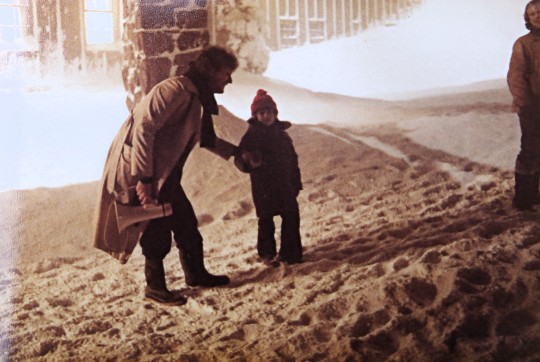


The Shining - On-set photographs (c. 1979)
#the shining#behind the scenes#80s horror#stanley kubrick#jack nicholson#shelley duvall#scatman crothers#jack torrance#overlook hotel#filmmaking#film production#80s movies#seventies#1979
1K notes
·
View notes
Text

The classic pan up starting with Ed's open legs, one hand resting on a strategically placed gun, and the other caressing its way down his torso. Standing out from the fire in the golden light that comes to reflect hope and love throughout the show. This is not only brilliant filmmaking but is hot as sin and a crazy way to introduce a full shot of Blackbeard. He's seducing everyone.
#ofmd#our flag means death#ofmd edward teach#blackbeard#filmmaking#this is hotter than the devil's armpit#saveofmd#renew as a crew
946 notes
·
View notes
Text
5 Tips for Creating Intimidating Antagonists
Antagonists, whether people, the world, an object, or something else are integral to giving your story stakes and enough conflict to challenge your character enough to change them. Today I’m just going to focus on people antagonists because they are the easiest to do this with!
1. Your antagonist is still a character
While sure, antagonists exist in the story to combat your MC and make their lives and quest difficult, they are still characters in the story—they are still people in the world.
Antagonists lacking in this humanity may land flat or uninteresting, and it’s more likely they’ll fall into trope territory.
You should treat your antagonists like any other character. They should have goals, objectives, flaws, backstories, etc. (check out my character creation stuff here). They may even go through their own character arc, even if that doesn’t necessarily lead them to the ‘good’ side.
Really effective antagonists are human enough for us to see ourselves in them—in another universe, we could even be them.
2. They’re… antagonistic
There’s two types of antagonist. Type A and Type B. Type A antagonist’s have a goal that is opposite the MC’s. Type B’s goal is the same as the MC’s, but their objectives contradict each other.
For example, in Type A, your MC wants to win the contest, your antagonist wants them to lose.
In Type B, your MC wants to win the contest, and your antagonist wants to win the same contest. They can’t both win, so the way they get to their goal goes against each other.
A is where you get your Draco Malfoy’s, other school bullies, or President Snow’s (they don’t necessarily want what the MC does, they just don’t want them to have it.)
B is where you get the other Hunger Games contestants, or any adventure movie where the villain wants the secret treasure that the MCs are also hunting down. They want the same thing.
3. They have well-formed motivations
While we as the writers know that your antagonist was conceptualized to get in the way of the MC, they don’t know that. To them, they exist separate from the MC, and have their own reasons for doing what they do.
In Type A antagonists, whatever the MC wants would be bad for them in some way—so they can’t let them have it. For example, your MC wants to destroy Amazon, Jeff Bezos wants them not to do that. Why not? He wants to continue making money. To him, the MC getting what they want would take away something he has.
Other motivations could be: MC’s success would take away an opportunity they want, lose them power or fame or money or love, it could reveal something harmful about them—harming their reputation. It could even, in some cases, cause them physical harm.
This doesn’t necessarily have to be true, but the antagonist has to believe it’s true. Such as, if MC wins the competition, my wife will leave me for them. Maybe she absolutely wouldn’t, but your antagonist isn’t going to take that chance anyway.
In Type B antagonists, they want the same thing as the MC. In this case, their motivations could be literally anything. They want to win the competition to have enough money to save their family farm, or to prove to their family that they can succeed at something, or to bring them fame so that they won’t die a ‘nobody’.
They have a motivation separate from the MC, but that pesky protagonist keeps getting in their way.
4. They have power over the MC
Antagonists that aren’t able to combat the MC very well aren’t very interesting. Their job is to set the MC back, so they should be able to impact their journey and lives. They need some sort of advantage, privilege, or power over the MC.
President Snow has armies and the force of his system to squash Katniss. She’s able to survive through political tension and her own army of rebels, but he looms an incredibly formidable foe.
Your antagonist may be more wealthy, powerful, influential, intelligent, or skilled. They may have more people on their side. They are superior in some way to the protagonist.
5. And sometimes they win
Leading from the last point, your antagonists need wins. They need to get their way sometimes, which means your protagonist has to lose. You can do a bit of a trade off that allows your protagonist to lose enough to make a formidable foe out of their antagonist, but still allows them some progress using Fortunately, Unfortunately.
It goes like… Fortunately, MC gets accepted into the competition. Unfortunately, the antagonist convinces the rest of the competitors to hate them. Fortunately, they make one friend. Unfortunately, their first entry into the competition gets sabotaged. Fortunately, they make it through the first round anyway, etc. etc.
An antagonist that doesn’t do any antagonizing isn’t very interesting, and is completely pointless in their purpose to heighten stakes and create conflict for your protagonist to overcome. We’ll probably be talking about antagonists more soon!
Anything I missed?
#writing#creative writing#writers#screenwriting#writing inspiration#writing community#filmmaking#books#film#writing advice#antagonists#villains#writing antagonists#5 tips for creating intimidating antagonists
2K notes
·
View notes
Text
for me, the way i viewed the conversation between the old woman and barbie on the bench is also a matter of confidence.
when you compare the barbies in barbieland and the old woman on the bench, they practically say the same thing ("i'm beautiful") but their confidence and the core and roots behind it is so different.
the barbies in barbieland are confident out of ignorant, they have nothing to not be confident about. they're made of plastic, they have no cellulite, no private parts; it's always perfect in barbieland, so their hair is always perfect, their clothes, their shoes, everything is perfect. there's no bad day, no prejudice, no standards that you can't be part of in barbieland. so when the barbies say "i'm beautiful", they say it because they're ignorant. the core of their confidence is ignorance.
but when the old woman responds to barbie with "i know" to the "you're beautiful" comment, the confidence she has has a completely different core than the barbies. the old woman is the antithesis of everything you should be in barbieland. she's old, she has wrinkles, crow's feet, white hair, no hair. she has all of these qualities that our society will say is not beautiful, is ugly that these are things you avoid with skincare, retinol, botox all these things. the old woman lives in a society where the mass will not view her as beautiful.
and yet she's still confident, she still says "i know" because despite what everyone says, what all the standards are, she knows she's beautiful. thousands of people can disagree and say she's not, it won't matter because she knows she is. the old woman is confident despite knowing.
#barbie#barbie spoilers#barbie movie#barbie movie spoilers#barbie 2023#margot robbie#ken#kenough#ryan gosling#film#filmmaking#greta gerwig#barbenheimer#writing#america ferrera#will ferrell#kate mackinnon#simu liu#michael cera
1K notes
·
View notes
Text


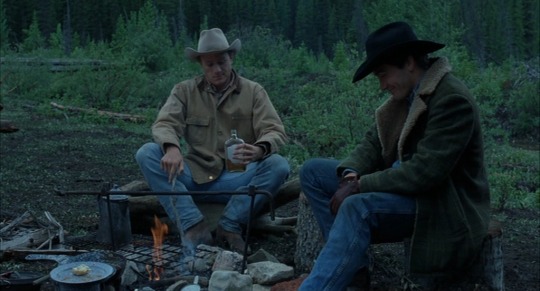
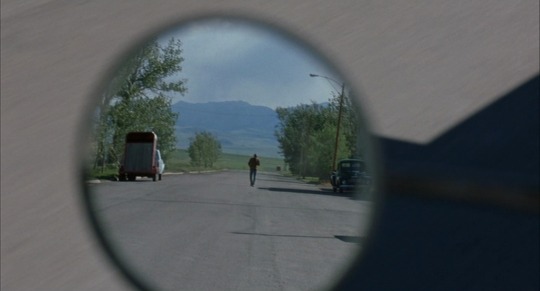
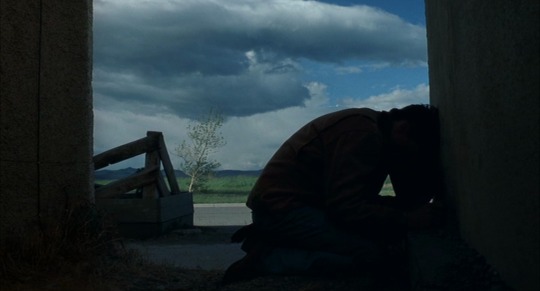

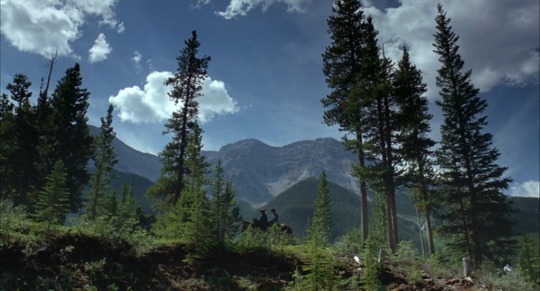
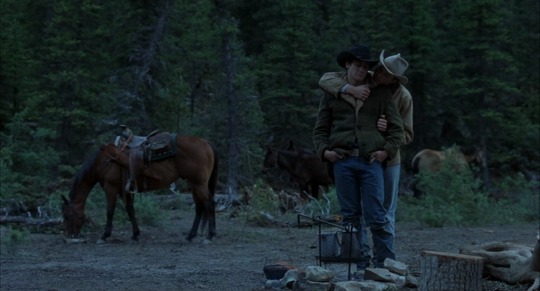

I wish I knew how to quit you
Brokeback Mountain (2005)
#cinematography#screencaps#film#film screencaps#film stills#filmmaking#cinema#queer cinema#brokeback mountain#heath ledger#jake gyllenhaal#ang lee#michelle williams#anne hathaway
4K notes
·
View notes
Text
One thing I appreciate about Barbie was the emphasis on age.
I was emotional when Barbie told the old woman how beautiful she was, and when Ruth came in and helped her become human.
It was also the fact that America Ferrera was the one having the crisis that caused Barbie to do the same.
The whole concept of the toy doesn't end in childhood. Cause she is an idea; Barbie is forever. She's everything. She's meant to inspire women to keep going for what they dream. You don't age out of these ideas, they grow with you, just like how Margot Robbie grew with America Ferrera.
#yeah i don't remember america's character name#my b#barbie#barbie spoilers#barbie movie#barbie movie spoilers#margot robbie#ken#kenough#ryan gosling#film#filmmaking#greta gerwig#america ferrera#simu liu#michael cera#kate mackinnon#will ferrell#corner conversations
32K notes
·
View notes
Text
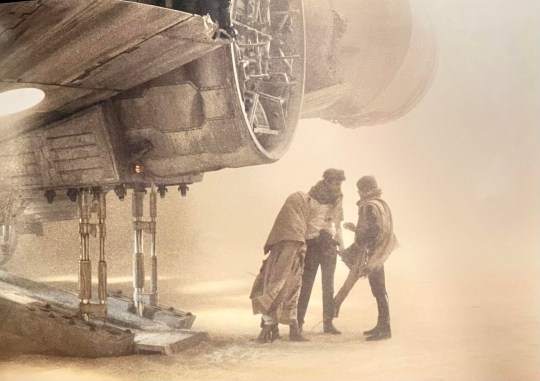
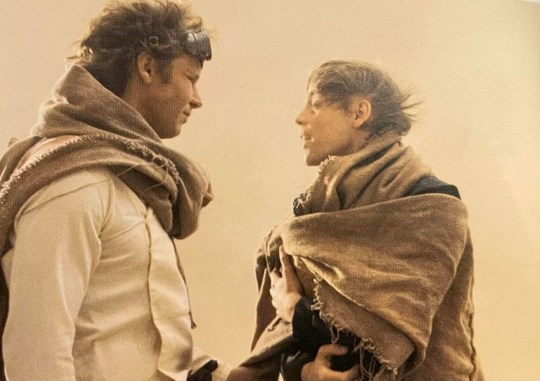
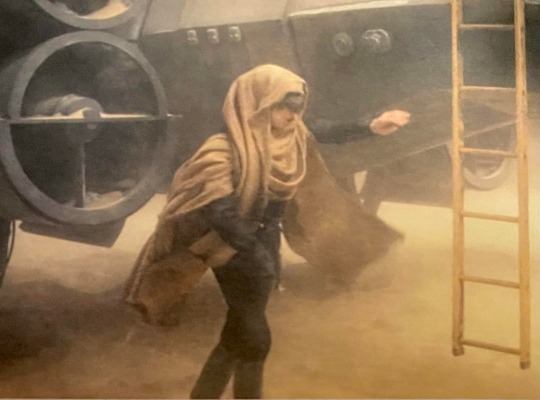

Deleted sandstorm sequence from Return of the Jedi (1983)
#return of the jedi#science fiction#fantasy#movies#1983#1980s#mark hamill#harrison ford#carrie fisher#george lucas#star wars#hollywood#filmmaking#behind the scenes#deleted scenes
662 notes
·
View notes
Text

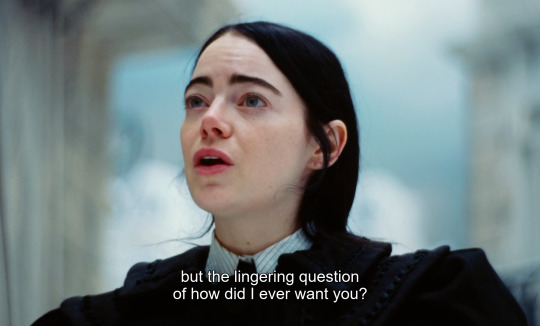
Poor Things (2023)
dir. Yorgos Lanthimos
#poor things#emma stone#mark ruffalo#willem dafoe#film#stills#film stills#caps#screencaps#screenshots#filmmaking#filmedit#cinema#dailyworldcinema#cinemaspam#cinephile#cinematography#bella baxter#duncan wedderburn#yorgos lanthimos#ramy youssef
752 notes
·
View notes